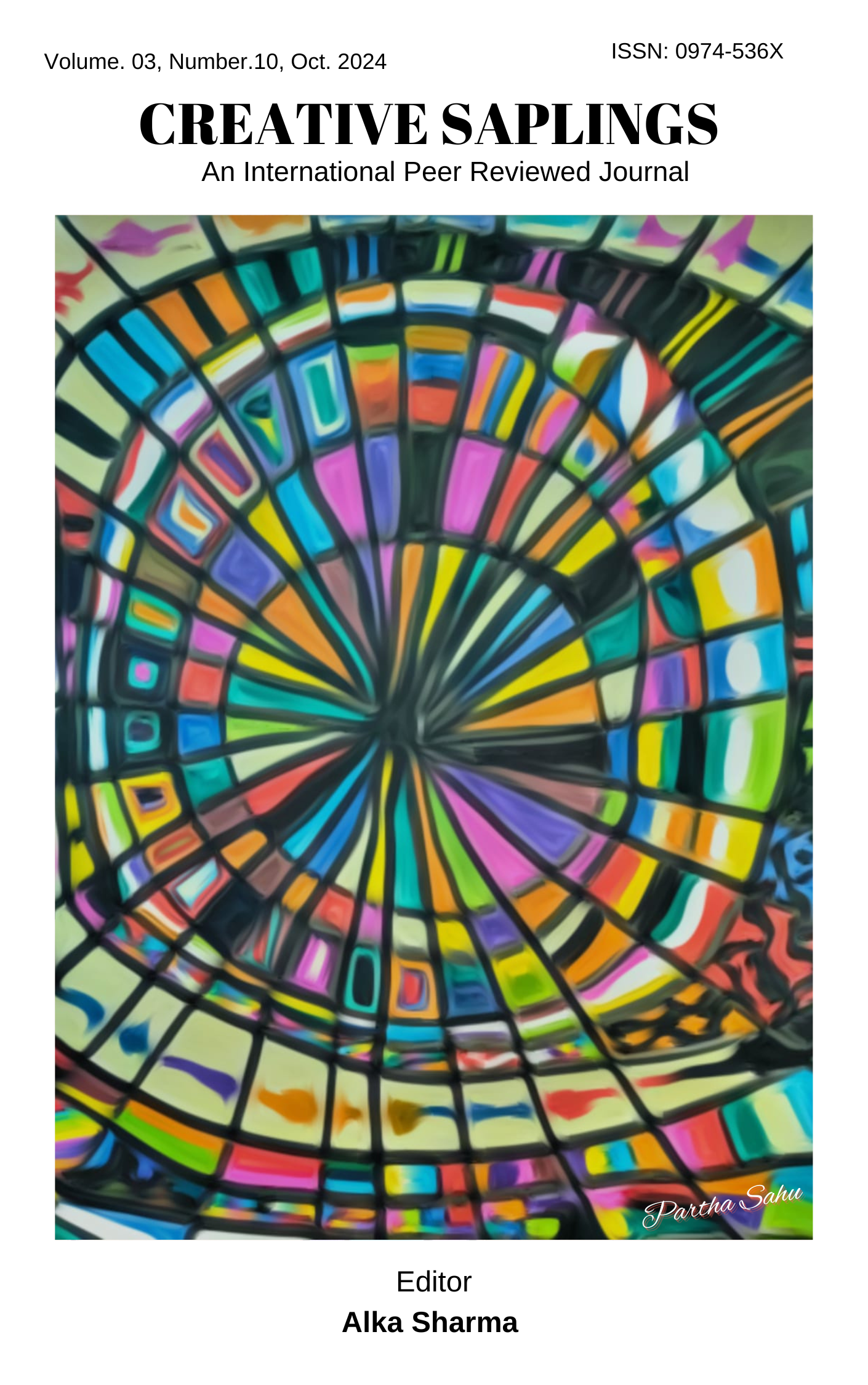Post-colonial Eco-criticism and Shades of Environmental Perceptions in the Conflict Spectrum
DOI:
https://doi.org/10.56062/gtrs.2024.3.10.770Keywords:
Conflict, human-nature relations, place attachment and displacement environmental perception, person dimension, place dimension, function dimension, place-continuity referent and sense of belongingness.Abstract
Environmental perception is etched in ecological psychology and describes how individuals experience bonds that are predicated upon some high sense of reliance and confidence in a place. Although African scholars and critics have used environmentally-skewed approaches to examine their post-colonial experiences, the bulk of these engagements has revolved around the environmental impact of oil in African oil producing states as if the oil crisis is the only complicit factor in environmental despoliation on the continent. Incidentally, issues emanating from the conflict spectrum, like wars and violent uprisings, contribute significantly to the myriad of environmental challenges in Africa but have not received adequate engagement in the existing literature. Not many scholars have fore-grounded purposive environmental perspectives to war/conflict narratives. Few writers have considered the scope of related physical, psychological, spiritual, and emotional dislocations to human-nature interactions manifesting as consequences of violence in conflict situations. Thus, this study adopts the qualitative analytical method and highlights the disruptive tendencies of conflict using Agbasimalo’s Roses and Bullets and Adichie’s Half of a Yellow Sun. Relying on the tenets of Huggan and Tiffin’ strand of Post-colonial Eco-criticism, the study depicts the extent to which the far-reaching ills of the conflict spectrum can, beyond the physical destruction of the biosphere, sever place attachment bonds, desecrate the spiritual essence of spaces, invalidate the emotional and psychological import of human-nature interactions and dislocate human-nature relations in irreversible ways. The study traces the dialectics of place attachment and displacement in eco-critical discourse.
Downloads
References
Achebe, Chinua. Things Fall Apart. Heinemann, 1958.
Adichie, Chimamanda. Half of a Yellow Sun. Fourth Estate, 2007.
Adimora-Ezeigbo, Akachi. Roses and Bullets. University Press Plc, 2011.
Booker, Keith. & Juraga, Dubravka. “The Reds and the Blacks: The Historical Novel in the Soviet Union and Post-colonial Africa.” Studies in the Novel Vol. 29. No. 3 (2005): 274-296.
Buell, Lawrence. The Future of Environmental Criticism: Environmental Crisis and Literary Imagination. Blackwell, 2005.
Caminero-Santangelo, Byron. “Different Shades of Green: Eco-criticism and African Literature.” Quayson, Tejumola Olaniyan and Ato. African Literature: An Anthology of Criticism and Theory. Blackwell, 2007. 698 – 706.
Glotfelty, Cheryll and Fromm, Harold. The Eco-criticism Reader: Landmarks in Literary Ecology. University of Georgia Press, 1996.
Huggan, Graham. & Helen. Tiffin. Post-colonial Eco-criticism. Routledge, 2010.
Najafi, Mina and Kamal, Mustafa. “The Concept of Place Attachment in Environmental Psychology.” Elixir International Journal Vol. 45. No. 1. 2012: 7637-7641.
Ngugi, WaThiong’o. Decolonising the Mind. Zimbabwe Publishing House, 1981.
Nixon, Rob. Slow Violence and the Environmentalism of the Poor. Harvard UP, 2011.
Olumba, Ezenwa. The Politics of Eco-violence: Why is Conflict Escalating in Nigeria’s MiddleBelt? Terrorism and Political Violence Journal.Vol. 36. No. 2. 2024. 180 - 197.
Parsa, Rogayeh and Zohreh Torabi. “Explaining the Concept of Identity and Sense of Place in Residential Environment and Lifestyle.” Business and Management Review Vol. 4. No. 5. (2015): 27-40.
Plumwood, Val. Feminism and The Mastery of Nature. Routledge, 1993.
Scannell, Leila and Robert Gifford. “Defining Place Attachment: A Tripartite Organising Framework.” Journal of Environmental Psychology Vol. 30. No. 1. (2019): 1-10.
Slaymaker, Williams. “Echoing Other(s): The call for Global Green and Black African Responses.” Tejumola Olaniyan, and Ato Quayson. African Literature: An Anthology of Criticism and Theory. Blackwell, 2007. 683 – 697.
Shynu, Robert., Kumar, Santhosh., & Sambath, RD. “Factors Influencing Environmental Perception: A Systematic Review. Journal of Physics: Conference Series. 012040. 2021. 1-12.
Soga, Masashi & Gaston, Kevin. Towards a Unified Understanding of Human-Nature Interactions. Nature Research. 2021. doi: 10.1038/s41893-021-00818-z
Vital, Anthony. “Toward an African Ecocriticism: Post-colonialism, Ecology and Life & Times of Michael K. .” Research in African Literatures Vol. 39. No. 1. (2009): 1-14.
Worster, Donald. The Wealth of Nature. Oxford Publishing, 1993.
Downloads
Published
Issue
Section
License

This work is licensed under a Creative Commons Attribution-NonCommercial 4.0 International License.





